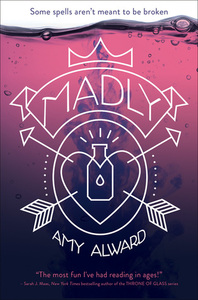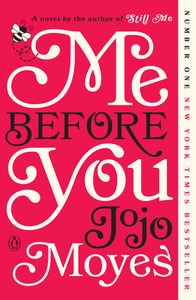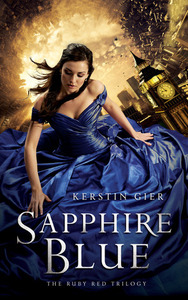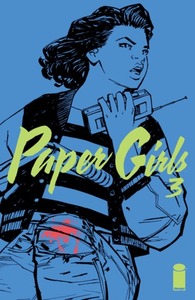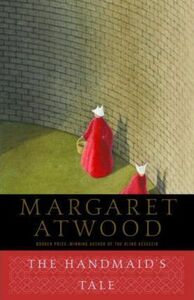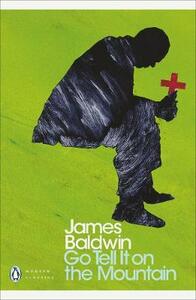You need to sign in or sign up before continuing.
Take a photo of a barcode or cover
introvertinterrupted's Reviews (1.08k)
Sapphire Blue has a bit more action than Ruby Red. In this second installment readers get to see Gwyneth travel back in time more and converse with her ancestors, which allows her to obtain more answers to her questions about why she must time travel.
Also, in Sapphire Blue, the love connection between Gwyneth and Gideon becomes more apparent. Gier constructs this weird dynamic between these two characters in her first book and it only gets more complicated as the series goes on. At first, it seems like Gideon likes Gwyneth. Then, it seems like he hates her. THEN, it's like okay, maybe he does, maybe he doesn't...in short, his character holds a lot of secrets. None of which, are really revealed until the end of Sapphire Blue.
Gideon's character seems to be good however, my actual feelings toward him changes continuously throughout the first two books. When he's first introduced, I just assume that he is a sort of secret bad guy.Later on, it's revealed that he was mostly raised by the secret society and was unable to actually spend time with other kids besides Charlotte. Therefore, the fact that Gwyneth is his new untrained time traveling sidekick is a little much for him to bear. Yet, he outwardly warms toward her, but still gives multiple hints that he would rather work alone. This places him on the potential bad guy list along with like 50 other people.
I'm seriously anticipating the third book in this series.
Also, in Sapphire Blue, the love connection between Gwyneth and Gideon becomes more apparent. Gier constructs this weird dynamic between these two characters in her first book and it only gets more complicated as the series goes on. At first, it seems like Gideon likes Gwyneth. Then, it seems like he hates her. THEN, it's like okay, maybe he does, maybe he doesn't...in short, his character holds a lot of secrets. None of which, are really revealed until the end of Sapphire Blue.
Gideon's character seems to be good however, my actual feelings toward him changes continuously throughout the first two books. When he's first introduced, I just assume that he is a sort of secret bad guy.
I'm seriously anticipating the third book in this series.
I'm loving the modern day character of Archie. Seeing him in all his klutzy glory was hilarious in this edition. I especially am enjoying how Waid has made Archie an interactive character who breaks the fourth wall and interacts directly with the reader. Watching him try to get a job and failing is something any teen or twenty-something can relate to.
Likewise, the "tribe" aspect of these Archie comics are endearing. It's nice to see how the other characters are all very much invested in helping Archie (and even Betty in the first edition) excel because for them, just like for the reader, Archie (and Betty in the first edition) represents this thing of purity in their community and even if their lives are all peachy, they want to make sure that Archie is fine. I absolutely love this fact about the revamped comics.
Likewise, the "tribe" aspect of these Archie comics are endearing. It's nice to see how the other characters are all very much invested in helping Archie (and even Betty in the first edition) excel because for them, just like for the reader, Archie (and Betty in the first edition) represents this thing of purity in their community and even if their lives are all peachy, they want to make sure that Archie is fine. I absolutely love this fact about the revamped comics.
I gave this book 3.5 stars.
I enjoyed this book much more than I thought I would. I liked that Baldwin made his character's accessible to all readers and not just the ones who were going to be reading his book during the time it was published. The concept of being "lost in religion" is highly relevant to many individuals who are raised in religious households and are forced to do battle with their parents' concept of God versus who God eventually will become to them.
However, I did feel like the main character, John's story took a backseat to his parents' narratives. In the book, Baldwin chooses to give John's parents large chapters while only giving John a significantly smaller portion of the book to muddle through his feelings about his place in Christ therefore, making the story feel uneven. I personally would have loved if the book was longer allowing me to read more of the parents' history and see a full resolution of John's religious awakening.
Yet, even without these additions, this was a good read. I'm glad to finally have this classic work of African-American literature under my belt.
I enjoyed this book much more than I thought I would. I liked that Baldwin made his character's accessible to all readers and not just the ones who were going to be reading his book during the time it was published. The concept of being "lost in religion" is highly relevant to many individuals who are raised in religious households and are forced to do battle with their parents' concept of God versus who God eventually will become to them.
However, I did feel like the main character, John's story took a backseat to his parents' narratives. In the book, Baldwin chooses to give John's parents large chapters while only giving John a significantly smaller portion of the book to muddle through his feelings about his place in Christ therefore, making the story feel uneven. I personally would have loved if the book was longer allowing me to read more of the parents' history and see a full resolution of John's religious awakening.
Yet, even without these additions, this was a good read. I'm glad to finally have this classic work of African-American literature under my belt.
